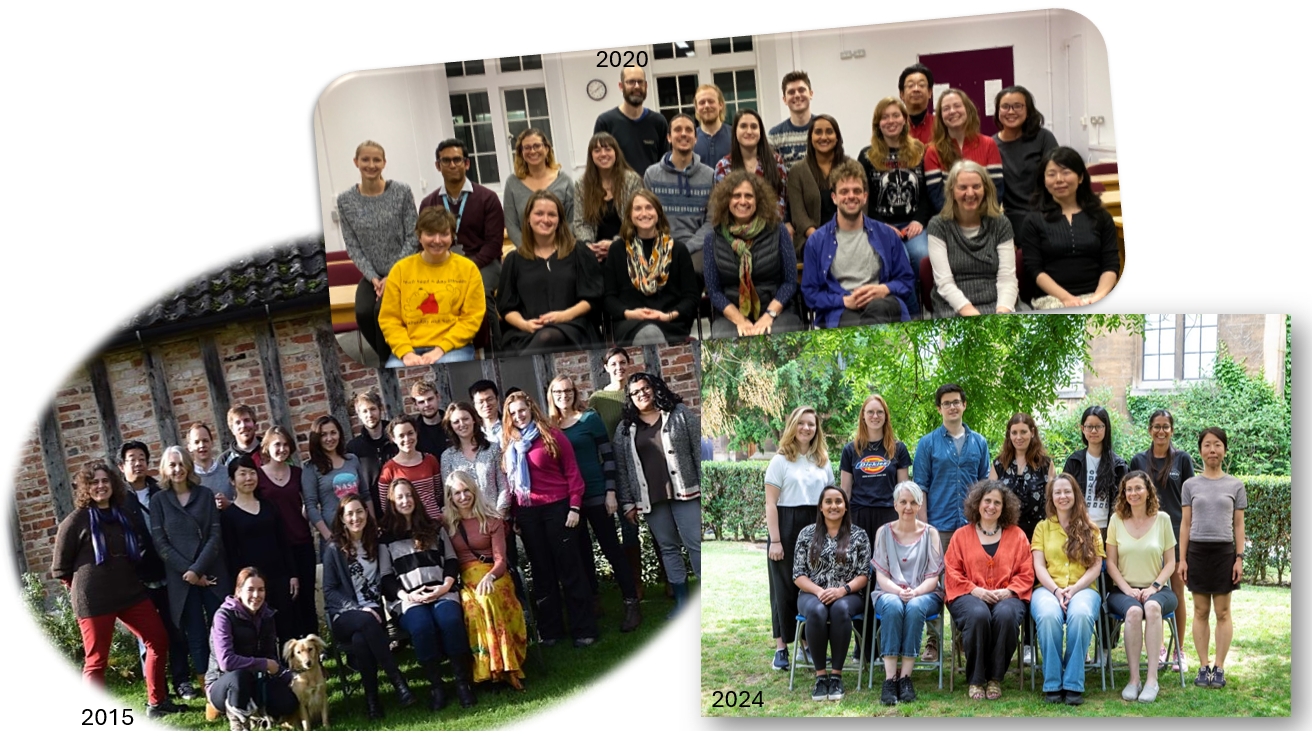Anne Ferguson-Smith, Group Leader
What is your current role?
I have two roles – I am the Balfour Professor of Genetics in the Department of Genetics; this is currently a 20% appointment. I am also the Executive Chair of the BBSRC in UKRI. This is an 80% government appointment.
When did you start with the Department?
I joined the Department of Genetics in June 2013.
What are you currently working on?
We focus on two topics driven by our interest in mammalian epigenetic inheritance and the epigenetic control of genome function.
The first topic is Genomic imprinting – the process that causes genes to be expressed according to their parental origin. Our imprinting work explores two areas; firstly why did imprinting evolve, which we pursue through understanding the function of imprinted genes which takes us on journeys exploring mammalian development, physiology and even neuroscience. And the second area focuses on understanding the mechanism controlling this epigenetically regulated phenomenon which, though interesting from an imprinting perspective, also provides a useful model for understanding the epigenetic control of gene expression more generally.
The second topic we focus on, which is somewhat related mechanistically to genomic imprinting, is the regulation of transposons in the mammalian genome; particularly those which are incompletely silenced by DNA methylation to extents that differ between individuals. This enables the regulatory features in the transposon to differentially regulate genes in cis. We are keen to understand the extent to which such epialleles contribute to phenotypic variation between individuals. This novel concept, the epigenetic control of variable expressivity has implications for health and disease.
How did you get started in science?
I grew up in a scientific household and saw my first chromosome under a microscope when I was quite small. It felt like magic that something so small could contain the genetic information that controlled our cells.
What has been a defining moment in your career?
Two things – one about science and one about leadership; first, when I was a PhD student, I read about the discovery of genomic imprinting and was immediately smitten by the implications of epigenetics. And second becoming the Head of the Department of Genetics which was the best job ever….
What advice would you give to other women wanting a career in science?
The same as I would give anyone interested in a career in science. Be bold, creative and ambitious from the start, be patient and excellent, and then let your science do the talking for you – you are just a conduit for the science.
What are your future goals, for yourself or for women in science?
At the moment I want to ensure that bioscience and biotechnology gets the support it needs and deserves from government, that UK researchers are able to continue to the very best discovery research and that they also are able to make cutting edge technological advances and develop bioscience applications that provide solutions to contemporary societal challenges.

